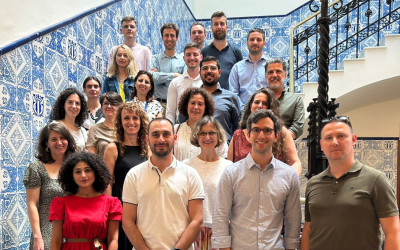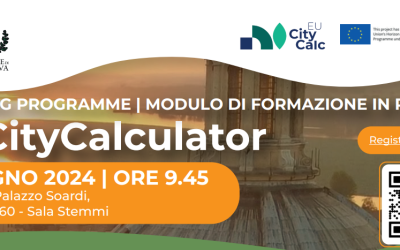Four new cities have already uploaded their data to create customised low-carbon scenarios
Since the EU City Calculator was made available to new municipalities six months ago, four new cities have already uploaded their data to identify which measures can have the greatest impact on decarbonising energy-relevant sectors such as public transport and the construction industry. We are delighted to welcome on board:
- Communauté urbaine de Strasburg (France)
- Tours Métropole (France)
- Clondalkin, Dublin (Ireland)
- Dublin City Council (Ireland)
- Limbazi (Latvia)
Supporting public authorities in making the right policy choices
Among the many existing challenges, the city of Dublin is particularly focused on integrating renewable sources (such as PV panels), implementing transport measures, and retrofitting building stock for energy efficiency. Properly assessing the baseline emissions inventory and consistently tracking it over the years is key.
“I am looking for the most efficient strategies to decarbonise cities in Ireland, particularly Dublin,” said Arthur Trousseau, who enrolled in the EUCityCalc learning programme and attended in-person training in Brussels on behalf of Codema – Dublin’s Energy Agency. “The ability to create different scenarios based on potential policies that local authorities might implement seems to be a powerful way to provide them with insights into fostering decarbonisation in their city,” he added.
Trousseau hopes that the EU City Calculator will give the municipality enough flexibility to modify and understand the models and parameters used, so new tools can be tailored to the local situation. Moreover, the evidence provided by the Calculator can enhance communication with other cities and citizens.
A free web tool tailored to your city’s context
The major issue that Tours Métropole needs to tackle is the decarbonisation of both the transport and building sectors.
“Should we aim for 1 or 10,000m² of energy overhauls each year?” Victor Caritte, an engineer working for the municipality who enrolled in the EUCityCalc learning programme and workshop, hopes that the EU City Calculator will help him answer this and other similar questions, enabling local authorities to develop and implement the most efficient energy transition policies.
Caritte mentioned that they chose to use the Calculator because “We used to have a modelling tool developed by a private consultancy, but it was becoming difficult to maintain.” One of the benefits of this EU-funded web tool is that it is open-source and free of charge, indeed.
Join us and get a step closer to climate neutrality!
Do you want to support your city’s efforts to become more sustainable?
Do you want to know which solutions are best suited to your context?
Then start uploading your city’s data to the EU City Calculator!
Are you interested in learning more about how to use the tool, engage with relevant stakeholders, and understand the EU-policy context? You still have until 31 August to enrol and complete the free learning programme. Don’t miss this chance!











